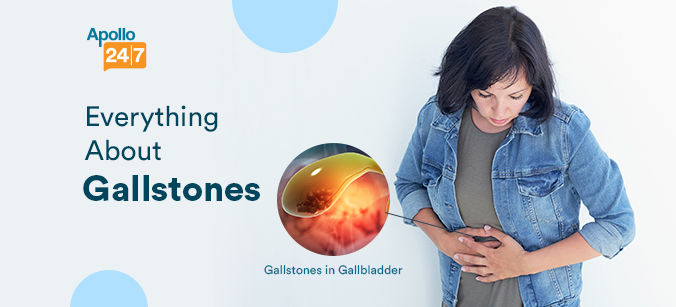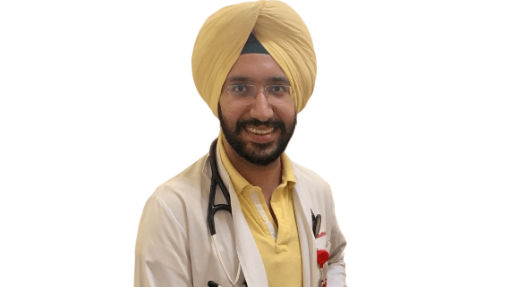General Health
Healthy Eating Tips to Manage Fatty Liver
5 min read
By Apollo 24|7,Reviewed by Dr. Srividya Kalavagunta, Verified by Dr. Divya Chandrasekharan, Published on - 12 August 2024
Share this article
0
0 like
.jpg?tr=q-80)
A good diet is key to living a long and happy life. Even if you are disease-free, eating healthy is important. Maintaining a good diet is even more essential for conditions like fatty liver. Fatty liver is reversible in the early stage, and a healthy diet can help repair damaged liver cells, restoring the liver to normal function.
A fatty liver diet aims to reduce the consumption of items that worsen liver disease while increasing the intake of nutrient-dense, liver-friendly foods. In this article, we will explore healthy eating tips for managing fatty liver, identify foods to avoid, and discuss other significant lifestyle changes to help manage fatty liver disease.
What to Eat for Fatty Liver Disease
A healthy diet is essential for maintaining a healthy liver that helps support metabolism, immunity, digestion, detoxification, and storage of vitamins. Let's explore the foods to include in your diet for managing fatty liver disease.
- Fruits and Vegetables: Ensure you get a range of vitamins and antioxidants by eating plenty of fruits and vegetables.
- Whole Grains: Choose whole grains like brown rice, quinoa, and whole wheat bread instead of refined grains.
- Lean Proteins: Opt for lean proteins such as chicken, turkey, fish, beans, and legumes.
- Healthy Fats: Include sources of healthy fats, like avocados, nuts, seeds, and olive oil, in moderation.
- Fiber-rich Diet: Fiber aids digestion, promotes satiety, & regulates blood sugar levels, which are beneficial for managing fatty liver disease.
- Probiotics: They may help improve liver enzymes, reduce liver fat accumulation, and alleviate inflammation in the liver.
- Take Supplements: Ask your doctor for supplements and about vitamin E and omega-3 fatty acids.
How These Foods Can Help Prevent and Manage Fatty Liver
- Fatty Fish have omega-3s to reduce liver inflammation.
- Fiber-rich foods and Healthy fats lower cholesterol and can help reduce liver fat accumulation.
- Cruciferous Vegetables will protect the liver and support liver health.
- Lean proteins like chicken, turkey, fish, beans, and legumes are low in unhealthy fats. Consuming lean proteins instead of high-fat options can help reduce fat accumulation in the liver and support liver repair.
Foods to Avoid in Fatty Liver
It's important to know what to eat when you have fatty liver disease, but it's equally important to know what to avoid. Let's look at the foods that should be avoided in fatty liver disease:
- Sugary Foods and Beverages: Sodas, candies, desserts, fruit juices, and sugary cereals must be avoided, as high sugar intake can lead to fat buildup in the liver and worsen liver inflammation.
- Refined Carbohydrates: White bread, pasta, pastries, and other products made from white flour can spike blood sugar levels and contribute to insulin resistance, exacerbating fatty liver.
- Saturated and Trans Fats: Fried foods, fast foods, processed snacks, margarine, and certain baked goods are unhealthy fats that can increase liver fat, promote inflammation, and worsen liver function.
- Alcohol: Alcohol is toxic to the liver and can accelerate liver damage, leading to conditions like alcoholic fatty liver disease.
- Processed Foods: Pre-packaged meals, sausages, hot dogs, and other highly processed meats often contain unhealthy fats, high levels of salt, and additives that can strain the liver.
- Red Meat: Foods like beef, pork, and lamb are high in saturated fat, which can contribute to liver fat accumulation and inflammation, and hence should not be consumed.
- Full-Fat Dairy Products: Whole milk, cheese, butter, and cream are high in saturated fat, which can negatively impact liver health.
- Excessive Caffeine: Large amounts of coffee, energy drinks, and caffeinated sodas can lead to dehydration and increased liver stress.
Avoiding these foods can help manage fatty liver disease, reduce liver inflammation, and promote overall liver health. Instead, focus on a balanced diet rich in fruits, vegetables, whole grains, lean proteins, and healthy fats.
Sample Meal Options for Fatty Liver Diet
Breakfast
- Oats Idli + Vegetable Sambar
- Poha with peas and carrot
- Vegetable Semiya (vermicelli) upma
- Ragi dosa + Coconut Chutney
- Beans and Carrot Upma + Green Tea
Lunch
- Brown Rice + Moong Dal + Tomato Capsicum Curry
- Jowar Roti + Palak Paneer + Beans carrot stir fry
- Quinoa Pulao + Rajma Curry + Cucumber Salad
- Kodo Millet Rice + Chole Curry + Mix Vegetable Salad
- Whole wheat Chapati + Lauki Curry + Cucumber slices
Dinner
- Grilled Chicken + Cucumber Raita
- Brown Rice Bowl + Tofu Stir-fry
- Spinach Curry + Roti + Tomato Cucumber Salad
- Baked Fish + Stir-Fried Vegetables
- Vegetable Khichdi + Curd
Snacks
- Apple slices
- Carrot sticks + Hummus
- Mixed Berries + Curd (Yogurt)
- Nuts (Almonds)
- Roasted Chana
- Mixed Sprouts Salad
- Whole Wheat Bread + Tomato Slices
- Green Tea
- Buttermilk
- Aloe Vera juice
Other Lifestyle Changes for Better Liver Health
- Eat a balanced diet of fruits, vegetables, whole grains, lean proteins, and healthy fats.
- Aim for at least 30 minutes of moderate exercise, such as walking, jogging, or cycling, most days of the week.
- Achieve and maintain a healthy weight through diet and exercise.
- Aim for gradual weight loss if overweight, as rapid weight loss can stress the liver.
- Stay well-hydrated by drinking plenty of water throughout the day to support liver function.
- Avoid or limit alcohol. Alcohol can damage the liver, so it's best to avoid it or consume it in moderation.
- Quit smoking. Smoking can exacerbate liver damage, so quitting is essential for liver health.
- Take medications and supplements only as prescribed and avoid over-the-counter drugs that can harm the liver.
Conclusion
Fatty liver disease develops when too much fat accumulates in the liver. To manage it effectively, focus on a healthy diet, regular exercise, and weight loss. Foods like fatty fish, fiber-rich vegetables, and healthy fats can boost liver health. A balanced diet and fundamental lifestyle changes can prevent, halt, and even reverse fatty liver disease. Taking care of your liver means eating nutritious foods, staying active, and limiting alcohol consumption.
Apollo 24|7 provides lab tests and doctor consultations to assist in managing and monitoring liver health, thereby supporting a healthier lifestyle.
Services
General Health
Consult Top Hepatologists
View AllLeave Comment
Services
Recommended for you

General Health
Chills Without Fever: What Causes Them and What to Do?
Chills usually occur with fever, but in some cases, they come without fever. So what do they mean then and what to do next? To know, read this blog.

General Health
What Type of Physician is Right for Your Family?
Discover the essence of family medicine and find the perfect physician to care for your family's health needs in this informative guide.

General Health
Know Everything About Gallstones/Gallbladder stones
Do you experience sudden mild pain on the right-hand side of the tummy or pain just below the breast bone? And does the pain usually last for 1 to 5 hours?
Subscribe
Sign up for our free Health Library Daily Newsletter
Get doctor-approved health tips, news, and more.
Visual Stories

Science-backed Home Remedies for Burns and Blisters
Tap to continue exploring
Recommended for you

General Health
Chills Without Fever: What Causes Them and What to Do?
Chills usually occur with fever, but in some cases, they come without fever. So what do they mean then and what to do next? To know, read this blog.

General Health
What Type of Physician is Right for Your Family?
Discover the essence of family medicine and find the perfect physician to care for your family's health needs in this informative guide.

General Health
Know Everything About Gallstones/Gallbladder stones
Do you experience sudden mild pain on the right-hand side of the tummy or pain just below the breast bone? And does the pain usually last for 1 to 5 hours?


